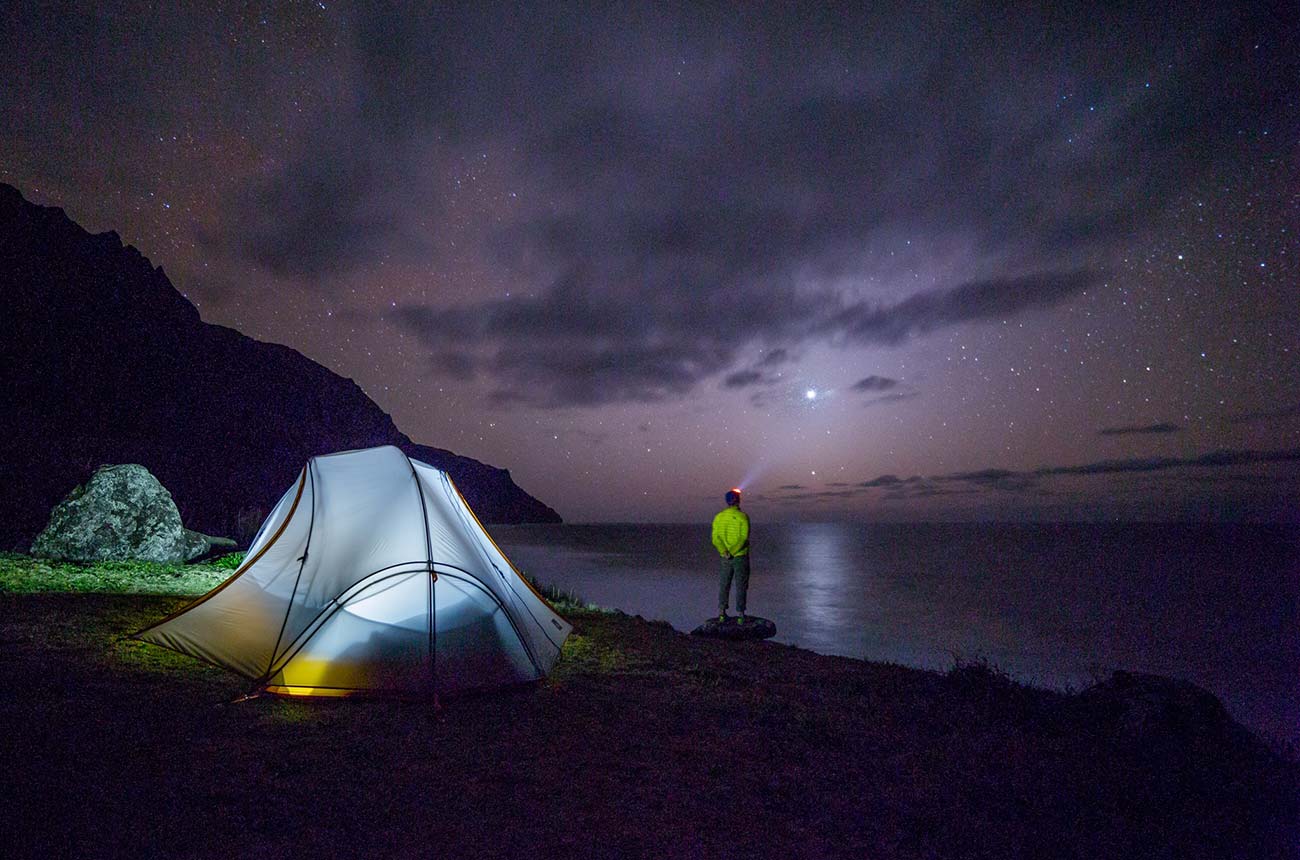
FC Says "No" to Techos - 4 Years in a Row
Jennifer Butcher queries the rationale behind some NZFC funding decisions…
By now most of you will be aware of the decision made by members at the recent AGMs to raise our subscriptions for the first time in many years. The rise is due in part to the fact that the subs make up the great majority of our funding, and the Guild’s workload has increased well out of proportion to the increase in our membership numbers. We have, of course, looked outside our organization for financial assistance to both continue and expand our activities.
The most logical place to start looking was the NZ Film Commission, since it has a funding programme in place specifically to support “Industry and Infrastructure.” In 2005, our then Executive Officer Janet Klee and Past-President David Madigan wrote the Guild’s first application to the NZFC for a small share of this funding. In our assessment, the Techos Guild clearly met the relevant criteria, as contained in the FC’s Application Guidelines:
(CAUTION - Dry, boring, but significant bit follows - however, do feel free to jump over this italicized section…)
Who can apply:
Professional film organisations that directly represent and support feature film producers, writers and directors and which have already demonstrated their value to the film industry. Organisations must have been in operation for a period of at least one year. The NZFC will not accept applications for establishment costs for new organisations.
Objective:
To support a programme of specific initiatives or activities undertaken by professional film organisations that develop feature film producers, writers and directors and contribute to the creation of cultural capital.
What to apply for:
Organisations can apply for partial financing towards specific initiatives or projects that contribute towards the NZFC’s purpose, goals and strategies. Organisations can also apply for infrastructure overhead financing at a level consistent with achieving the planned initiatives or projects.
We were turned down flat.
In 2006, the Guild sent in another application, and was again turned down. In 2007, our new Executive Officer – Megan Ritchie – drafted another application; and once again we were turned down. The Film Commission’s rejection letter stated: “The board … feels it is only able to fund organizations that directly support the guilds representing above-the-line practitioners, i.e. directors, producers and writers.”
I wonder, what exactly does the Commission mean by “SUPPORT” in the film industry?
Does passing on skill and experience count? I have worked as First Assistant Director on over a dozen short films, including several that were funded by the NZFC – most recently Coffee & Allah and Nature’s Way. I didn’t need to work on these to further my career; I definitely wasn’t working on them for the money! (Often my fee, when all time was calculated, was less than 8% of my time’s true value – if I was paid at all). I chose to work on them to, in the Film Commission’s own words, “contribute to the creation of cultural capital.”
On many of these films I was working with novice writers, directors and/or novice producers, and often novice cinematographers. As part of the process, I would teach these keen but inexperienced people many facets of filmmaking – for example:
- How to breakdown, number up and part out a script;
- How to create storyboards and set-blocking maps;
How to read and interpret Schedules, Call Sheets and Day-out-of-Day reports.
- Set protocol (aka “Setiquette”)
- How to block, rehearse and shoot a scene. Also how to resolve tricky blocking and “line crossing” or eye-line matching issues…
The list goes on and on. I am sure all experienced crew who’ve worked on short films have contributed similarly in their relative areas of skill and expertise. Does this not count as “direct support”?
Now, let’s take a look at the considerable financial support that Guild members provide to NZFC-funded projects.
In 2008, we gathered some statistics for our fourth application. We started out by cross-referencing our Guild membership database with the Filmcrews & CBA databases, along with Onfilm magazine’s Production Surveys. We wanted to figure out what percentage of the Techos Guild membership had worked on a FC-funded short or feature film in the last 5 years. The number conservatively (because if we weren’t sure, we left you out) came to 57%, or 297 out of the then membership of 528. I’ll come back to this later.
Next, we wanted to figure out the actual amount of uncharged, donated labour given to FC-funded projects by crew. We decided to focus on short films. A short film would typically engage one director, one writer and one or two producers per shoot. Crew, however, can number anywhere between 20 and 50. On an FC-funded feature film the crew numbers are even higher, often between 50 and 200, depending on the scale and budget.
It is common practice for crew members to discount their rates by 20-30% when working on a NZFC feature. This discount is even greater on short films – usually more than 50% - with HODs, who give so much more additional time in pre-production, often discounting up to 90%.
Working through the maths (If you want to skip this too, jump ahead to the underlined bit):
If you take an average NZFC $100,000 short film, it is Usual for crew payroll to be around 20% of the budget, though it is often less. So, let’s say $20,000 goes to the crew payroll per short film from the NZFC. Surveying our members, and consulting with the Crew Agencies, we have calculated that the average fully-paid day rate of a crew member is $450. This is on the conservative side, and includes rounding down the often substantially higher rates of HODs such as the 1st AD, DoP, and Production Designer. Remember too, that normally no overtime is charged, although most short films shoot 12-hour and longer days.
Often, because there is no financial penalty not to, these productions shoot beyond reasonable unpaid overtime, into and beyond the 14-hour zone. Again, all those hours could be charged at double time, but they are given for free and have not been included in this calculation.
So, let’s consider a short film with an average of 3 days preparation and 4 days shooting per crew member. (Conservative again, because the high-value HODs usually work at least double the amount of prep time to shooting time, and the Production and Art departments will typically have been working for weeks, not days, in pre-production).
Take a small 35mm film shoot with a crew of 30:
30 x crew x 7 days = 210 “crew days.”
Let’s add in 2 hours of T1.5 per day ($450 + 2 hrs @ T1.5 = $585); 210 x $585 = $122,850.
The NZFC, on average, funds 9 shorts per year; so 9 x $122,850 = $1,105,650.
Now let’s take off the crew payroll provided by the NZFC funding: 9 x $20,000 = $180,000.
We are left with a crew labour donation of $925,650 per year. NEARLY ONE MILLION DOLLARS – and remember, this figure is extremely conservative!
That’s a grand total of $4,628,250 of uncharged crew labour donated BY CREW to the NZFC over the last 5 years – on short films alone!
The Techos Guild members’ 57% share of this works out to $2,638,102.50.
Due to the varying number of feature films shot each year, it is hard to estimate what the additional contribution on feature film work would be. But given that they usually shoot for 6-8 weeks rather than 4-5 days, it is not a stretch to guesstimate a similar value again, if not considerably more, being donated by crew on NZFC-funded feature films.
A recent extreme example is that of the crew on Second-Hand Wedding. Owing to their deferred payments, we understand that the crew collectively became one of the largest financial contributors to that production.
Does this not count as “direct support”? Our Film Commission obviously doesn’t think so.
Let’s recap.
Techos Guild members support film production through their skill and experience, often teaching ingénue directors & producers the basics from scratch.
You, our members, support the NZ Film Commission financially, through your massive donation of unpaid labour.
In addition:
Creative HOD’s (e.g. Cinematographers, Designers), through their imagination and inventiveness, deliver visual production value on screen. Crew members often go on to become producers and directors in their own right, and their contributions and experiences in crew roles foster this development.
Surely this also counts as support? It would appear not – well, not to the NZFC.
(We have Academy Award winners amongst our membership. These people are awarded Oscars because of their creative contribution to the films they work on! Ed.)
In our 2008 application, our fourth, under the “Specific Projects” banner we applied for $30,000 for a specific project – “An Industry-Wide Crafts Rate Review.” We believed this would tick the appropriate boxes for the NZFC, and there is definitely an industry demand for this information.
A group of Assistant Directors created a rate review for their department in 2004, revised it in 2008, and added in Continuity and Script Supervisors. On the Techos Guild website, that single link receives more hits than all other links combined! Our Executive Officer fields calls every week from producers, line producers, and production managers (Note: they phone the Techos, not SPADA) inquiring about crew rates, so that they can create meaningful budgets – some of which will eventually be funded by the Film Commission.
So surely this project would qualify? No. For the fourth year in a row, the Techos Guild was turned down.
So - who has the NZFC decided supports Film Writers, Directors and Producers enough, or has suitable projects, to warrant receiving funding? The following information is taken from the FC website. (Editor’s note: The grants listed on the NZFC website are in seemingly random order; I’ve attempted, perhaps clumsily, to divide them into relevant groupings, then rank them by amount, to make reading and analysis easier.)
As you can see, the Techos Guild, the largest of all by membership, is pretty much the only film organization that the NZFC chooses not to fund! And remember, that the NZFC funding comes from your tax dollars in the first place.
The eagle-eyed among you may have spotted that Actors Equity is not on the list - however, they receive funding from the Australian Union - the Media Entertainment and Arts Alliance, of whom they are now a “fully-funded autonomous part.”
The Writers Guild, the Directors Guild, SPADA, Script to Screen, Film NZ – yes, that all makes sense.
Women in Film & Television and Nga Aho Whakaari – hmmmm – Okay. But the question could be asked: What percentage of these two organizations’ members actually work in FILM, and have directly supported FILM writers, directors and producers on NZFC-funded productions by their work? I could be wrong here, but I suspect that the majority of their members work in Television & Video, which is surely the funding responsibility of New Zealand On Air, not the FILM Commission.
The New Zealand Film Archive? An absolutely essential part of our cultural heritage, but aren’t we putting the cart before the horse here? How does the Film Archive directly contribute to Film Production (or to writers, directors and producers) in the process of developing a script, pitching and funding it, prepping it, shooting it, post-producing it, marketing and distributing it? Surely the Archive is the repository after all of this has already happened. Don’t get me wrong, it is a very worthy organization and deserves all the resourcing it gets – but I query whether the NZFC is the appropriate funding body, given its own current, very strict, criteria.
The Screen Awards, Festivals, Film Societies? Really? We all deem these organizations worthy, but exactly how do they fit with the statement that “The board … feels it is only able to fund organizations that directly support the guilds representing above-the-line practitioners, i.e. directors, producers and writers”? (From the NZFC rejection letter quoted earlier.) And yet the crew who made the films they are screening and/or rewarding are not worthy of NZFC support?
It is ironic that the DocNZ Festival receives funding, while we understand, through the grapevine, that (perhaps because they’ve not been around long enough) the NZ Documentary Makers Organisation was turned down. Go figure.
I contend that it is grossly unjust of the New Zealand Film Commission to continue to fund all of the above organisations whilst refusing, year after year, to help us. Our membership not only makes up the largest part of the machine that enables all NZFC film production to actually happen – we contribute far more than our fair share of the financial lubrication as well!
At this point, I would like to include a quote published previously in NZTECHO. It’s from Director Mark Albiston, and first appeared in OnFilm magazine. It bears repeating:
“Where would we be without a giving and SUPPORTIVE crew? This was really highlighted when we were in Cannes last year with our short Run, and discussing the NZ film industry with many directors and producers, who were surprised to hear that not only was it legal for crews to work below union rates, but, even more amazing, that they would choose to.”
The next time a producer asks you to work on a NZFC-funded short or feature film for considerably less than your normal day rate, you may wish to consider this article. Personally, I now prefer to give my voluntary time to the NZ Film and Video Technicians Guild. Given that the Guild receives no government funding, it needs all the voluntary help it can get!
But if you do choose to work on a NZFC production, the Guild recommends that you show the FULL Blue Book-compliant standard cost of your time on your invoice, before showing your discounted rate.
By the way, in their fourth rejection letter the Film Commission said:
“The NZFC does value greatly the role your organisations (sic) play in the New Zealand film industry, and will continue to actively encourage the above-the-line organisations funded under this programme to develop initiatives with the Techos Guild.”
But in the immortal words from the film Jerry Maguire, I say, “SHOW ME THE MONEY!”
Jennifer Butcher
1st Assistant Director
Auckland Branch Chair & National Executive Board Member, NZF&VTG.



























